By Leila Habib Bulletin Correspondent
‘It’s not about your byline. It’s about making sure you do the best job you can when you are reporting a story because it’s a reflection on the profession. It’s a reflection on every other journalist there trying to do the right thing. Make sure you have all your ducks in a row before you publish anything.’
— Karen Bordeleau,
Veteran Journalist,
Journalism Professor
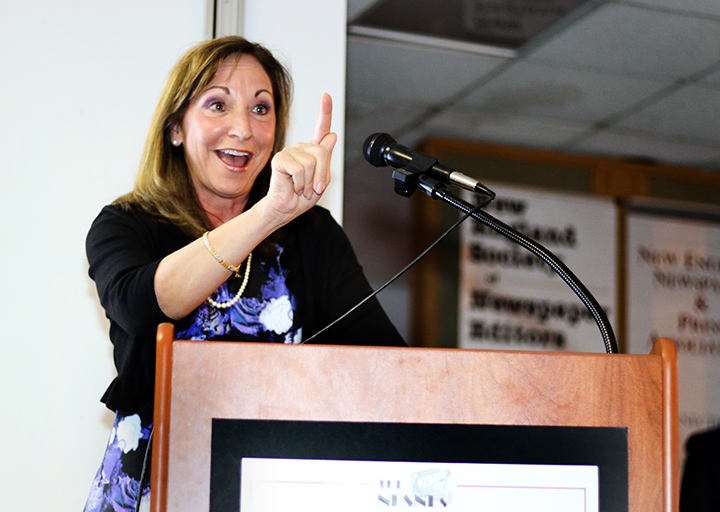
“You could tell stories, real stories, of people in this amazing way.” 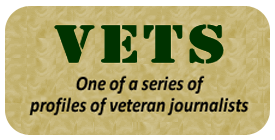
That was Karen Bordeleau’s first thought after reading Tom Wolfe’s “The New Journalism,” which she received on her 16th birthday. That book, along with the Watergate scandal, spurred her interest in journalism, which would turn into a successful career.
“The fact that it forced a state to bring down a president by diligent reporting amazed me, and I wanted to be a part of that,” Bordeleau, a Rhode Island native, said about the Watergate coverage.
The beginnings
Bordeleau began her journalism career with an internship at The Kent County Daily Times in West Warwick, R.I. Her first front-page story, about a class trip to Austria where she and her classmates misjudged their skiing levels, was published when she was 18.
“Intermediate in New England is not the same as intermediate in Austria,” Bordeleau said with a laugh, describing the unexpected difficulty of the slopes the students would ski down. “We made it down in one piece, but barely.”
She wrote about the experience.
“I had a byline, and all my parents’ friends were ooh-ing and ahh-ing over this story,” she said. “All this attention, it was kind of fun.”
Bordeleau pursued a bachelor’s degree at Northeastern University’s journalism school. She landed her first co-op internship at The Call of Woonsocket, R.I., and immediately found herself drawn to the energy of the newsroom.
“When people are reporting on important topics, there’s this energy that is very difficult to explain,” she said. “You want to be a part of the group that’s shining light in dark places and making a difference and changing laws and changing the way government behaves.”
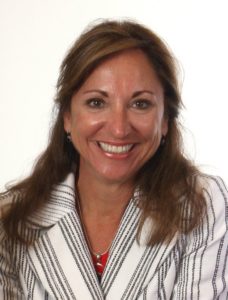
‘When people are reporting on important topics, there’s this energy that is very difficult to explain. You want to be a part of the group that’s shining light in dark places and making a difference and changing laws and changing the way government behaves.’
— Karen Bordeleau, Veteran journalist, journalism teacher
Making history
After graduating from Northeastern in 1982, Bordeleau returned to the Kent County Daily Times in 1989 and the Call in 1994, both newspapers where she previously interned, as an editor.
Bordeleau became a reporter at The Providence (R.I.) Journal in 1996, climbing the ranks until becoming, in 2013, its first female executive editor.
Bordeleau said of her role as executive editor: “It’s like guiding a child or raising a child. You’re always protecting the child. It is always protecting the integrity of the brand no matter what you do, no matter where you are.
“You are constantly aware that you’re representing these two groups of individuals and that your success is their success,” she said about being a female journalist. “It’s making sure that you’re making the right decisions because if you make a mistake, it reflects on the profession. It also reflects on other women, so you really have this incredible responsibility to make sure you get it right.”
Humanizing lost lives
In February 2003, a fire in a West Warwick nightclub, The Station, killed 100 people. The Providence Journal launched a nearly year-long investigation into the fire, uncovering fire code violations and the installment of a flammable sound insulation material. The Journal then contacted and interviewed the families of victims to depict the lives that were affected.
“There was just no reason for 100 people to perish,” Bordeleau said. “We wanted people to understand what we lost in that, who we lost in that.”
The coverage made the Journal a Pulitzer Prize finalist. Bordeleau was one of the two primary editors for the series.
Bordeleau took her passion for naming the voiceless to Pakistan, where she was invited to participate in a journalist exchange program by the International Center for Journalists in Washington, D.C. While teaching news management and advanced reporting courses in the Pakistani cities of Lahore and Karachi in 2015, Bordeleau noticed that publications would report the number of terrorist attack victims, but not give any context about who they were.
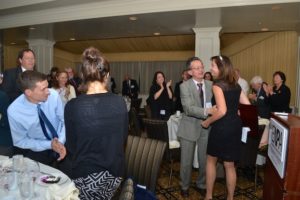
‘You have to be smart, but you also have to have a high level of emotional intelligence in order to understand what motivates people, how to manage people, and how to get them to understand why we’re doing what we’re doing. It’s not just about writing and reporting stories when you’re an executive editor. It’s about teaching others why it’s so important for us to do it this way, and both of those individuals taught me that.’
— Karen Bordeleau
“It’s unnerving because they don’t really explain or hadn’t explained who these people are and the impact of that loss,” she said.
Bordeleau decided to bring that into her classroom curriculum for the working professionals taking her courses in Pakistan.
“I was explaining how we did the Station fire and challenging them to tell their country who is lost in these impacts,” she said.
In December 2014, there was a terrorist attack on a school in Pakistan that killed 141 people, 132 of whom were children.
After taking Bordeleau’s news management course, a Pakistani online editor led an initiative to locate the children’s families and discover who the victims were, similar to the coverage of the Station fire.
“It explained to Pakistan what was lost in that terrorist attack. It wasn’t that 141 people died. It was that these were people, and that they’re not there anymore. They’re not going to grow up and be doctors, or veterinarians, or teachers, and that was very impactful,” Bordeleau said.
Marginalized voices first
In addition to The Station series, Bordeleau oversaw a year-long explanatory piece titled “Race in Rhode Island,” published in 2015 by the Providence Journal.
There was an obstacle to covering that topic.
“How could we tell this story with a white staff?” Bordeleau said.
To alleviate that obstacle, a group of 16 people was formed to serve as “eyes and ears in diverse communities.” Bordeleau said members of the group, which included the president of the NAACP, a Muslim doctor, and a Latino professor, would meet for a few hours every month.
“We wanted to make sure that we were telling the right stories, not just the stories that white people think are important,” she said.
Even with the presence of the sounding board, Bordeleau felt nervous about covering certain stories, such as a story about the “n-word,” and “minority.” Bordeleau sad that the pieces were received well, however, and showed that minority communities aren’t a monolith.
“We interviewed on video a lot of community leaders who had different things to say about it,” Bordeleau said. “It was really important to understand that just because you’re black doesn’t mean that everybody who’s black thinks the same thing about the word. It was really important for us to show that people have different opinions.”
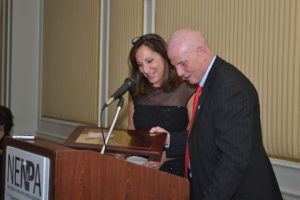
‘When people are reporting on important topics, there’s this energy that is very difficult to explain. You want to be a part of the group that’s shining light in dark places and making a difference and changing laws and changing the way government behaves.’
— Karen Bordeleau
Passing the torch
Bordeleau has received many awards, including the Judith Brown Spirit of Journalism Award in 2016 and the Yankee Quill Award in 2014. She was named one of the 30 Most Powerful Women in Rhode Island by Rhode Island Monthly in 2014 and was named one of the Top 10 Women to Watch in Media by Editor & Publisher in 2013.
She was elected president of the New England First Amendment Coalition in January, has been selected as a Pulitzer Prize juror twice, and has served on the board of directors of a nonprofit housing developer in Rhode Island called Women’s Development Corporation and of the Metcalf Institute of Marine and Environmental Reporting at the University of Rhode Island.
That list of recognitions and accomplishments does not include all of her distinctions, and it does not include what Bordeleau considers her most important achievement.
“My two daughters,” she said. “They’re just great people who contribute significantly to their own professions. To watch that is the most tremendous feeling, to watch them go about doing what they do.”
Between her family and career, Bordeleau finds time for herself on the competitive ballroom dance floor.
“It keeps me sane, the artistic expression,” she said. “Sometimes, when you’re in a newsroom, everything’s in your head. You’re always thinking and processing information. When you dance, it’s what’s in the heart, and it’s nice to have that balance.”
Bordeleau didn’t get to this point alone. She notes that William Kirtz, one of her Northeastern journalism professors, and Thomas Heslin, the Providence Journal executive editor before her, were important mentors in her life.
“You have to be smart, but you also have to have a high level of emotional intelligence in order to understand what motivates people, how to manage people, and how to get them to understand why we’re doing what we’re doing,” she said. “It’s not just about writing and reporting stories when you’re an executive editor. It’s about teaching others why it’s so important for us to do it this way, and both of those individuals taught me that.”
Bordeleau is continuing her 20-plus year teaching career. She began teaching in 1996 at the University of Rhode Island, and later has taught at Emerson College and Northeastern University, focusing on newswriting and journalism ethics.
“I don’t think you can accomplish anything good unless it’s through the filter of ethics. It’s about maximizing truth and minimizing harm, and you always have to make decisions based on those two truths,” she said. “It’s not just about writing pretty stories; it’s about making sure you go about it in the correct way.”
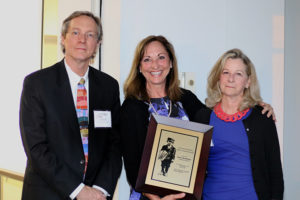
‘Who doesn’t like hanging around 20-year-olds? When I leave the classroom, I am so jacked because the students are so passionate about learning about this profession. It’s really just their enthusiasm that’s just a reminder about why I went into it and why I stay in it.’
— Karen Bordeleau
Being in a classroom rejuvenates Bordeleau’s love for her field, as she learns about the newest social media trends while cultivating her students’ passions for journalism.
“Who doesn’t like hanging around 20-year-olds? When I leave the classroom, I am so jacked because the students are so passionate about learning about this profession,” she said. “It’s really just their enthusiasm that’s just a reminder about why I went into it and why I stay in it.”
Bordeleau also taught two journalism ethics courses earlier this year at the Walter Cronkite School of Journalism and Mass Communication at Arizona State University as an Edith Kinney Gaylord Visiting Professor of Journalism Ethics.
“I’m really humbled to have been invited to teach there,” she said.
Maintaining integrity
In the era of fake news and alternative facts, Bordeleau thinks that one of the most important roles of journalists is to protect the integrity of the profession.
“We’re seeing so many assaults on this profession, and they’re faceless,” she said. “There are some people in government today that are trying to chip away at the respectability of the profession by attacking it. But people need to know that journalists have integrity.”
Bordeleau thinks that that can be achieved by verification and accuracy.
“There is a huge amount of verification that goes on before a story is published because we have an obligation … not just to tell the story, but to tell it in an accurate way,” she said.
Bordeleau thinks that that responsibility extends beyond borders.
“One of the most important contributions that us journalists can make is to not just concentrate on our own journalism in this country … but to also make sure that we share our information with journalists in fledgling democracies, because without journalism, you don’t have a democracy,” she said.
She advises young journalists to remember that being a journalist is more than about being an individual journalist.
“It’s not about your byline. It’s about making sure you do the best job you can when you are reporting a story because it’s a reflection on the profession. It’s a reflection on every other journalist there trying to do the right thing,” she said. “Make sure you have all your ducks in a row before you publish anything.”





